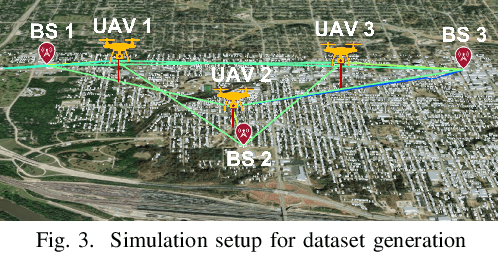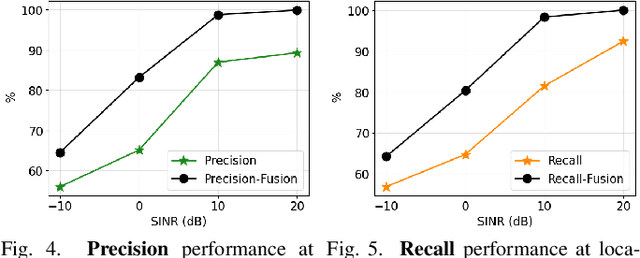Collaborative Wideband Spectrum Sensing and Scheduling for Networked UAVs in UTM Systems
Paper and Code
Aug 09, 2023



In this paper, we propose a data-driven framework for collaborative wideband spectrum sensing and scheduling for networked unmanned aerial vehicles (UAVs), which act as the secondary users to opportunistically utilize detected spectrum holes. To this end, we propose a multi-class classification problem for wideband spectrum sensing to detect vacant spectrum spots based on collected I/Q samples. To enhance the accuracy of the spectrum sensing module, the outputs from the multi-class classification by each individual UAV are fused at a server in the unmanned aircraft system traffic management (UTM) ecosystem. In the spectrum scheduling phase, we leverage reinforcement learning (RL) solutions to dynamically allocate the detected spectrum holes to the secondary users (i.e., UAVs). To evaluate the proposed methods, we establish a comprehensive simulation framework that generates a near-realistic synthetic dataset using MATLAB LTE toolbox by incorporating base-station~(BS) locations in a chosen area of interest, performing ray-tracing, and emulating the primary users channel usage in terms of I/Q samples. This evaluation methodology provides a flexible framework to generate large spectrum datasets that could be used for developing ML/AI-based spectrum management solutions for aerial devices.
 Add to Chrome
Add to Chrome Add to Firefox
Add to Firefox Add to Edge
Add to Edge